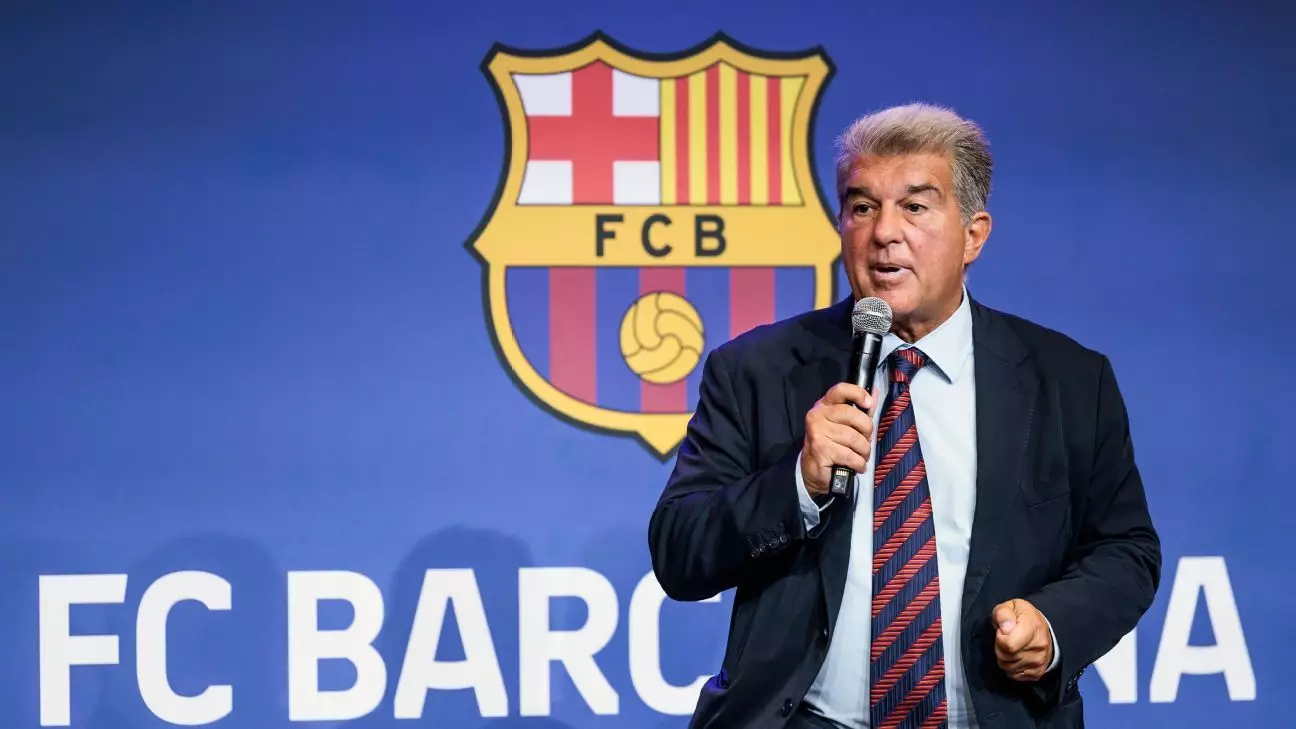The landscape of FC Barcelona has been tumultuous of late, with mounting pressure on president Joan Laporta due to a series of missteps surrounding player registrations. The failures concerning Dani Olmo and Pau Víctor’s ability to play have stirred significant unrest among various opposition groups within the club. Led by entities such as Víctor Font’s Sí al Futur and Joan Camprubí Montal’s Som un Clam, ten distinct parties have made unified calls for Laporta’s resignation. Such collective demands highlight a concerning trend that often emerges in football clubs: the erosion of trust in club leadership amid administrative blunders.
The opposition parties have cited “negligence” in the player registration process as a primary reason for their discontent. This negligence signifies not just an error but a potential systemic failure within the operational structure of the club. The inability of Barcelona to adhere to the financial fair play (FFP) guidelines set by LaLiga and the Spanish Football Federation (RFEF) illustrates a troubling oversight. After missing the critical December 31 deadline, the team’s hopes of re-registering Olmo and Víctor have been dashed, leading to fears that key players may be sidelined for significant matches, including the crucial Spanish Supercopa fixtures.
Moreover, the uncontroversially significant €100 million sale of VIP seats at the Camp Nou has come under scrutiny. The sale, intended to bolster the club’s finances during a time of renovation, has also been deemed by some as a missed opportunity to ensure compliance with FFP regulations. Could the administrative mishandling of this transaction have been the difference in successfully registering the players? This scenario raises considerable questions about the strategic planning within the club, implying a dangerous disconnect between financial management and on-field action.
Growing Calls for No Confidence
The coalition of opposition groups has asserted that if Laporta does not resign, they will pursue a vote of no confidence against his presidency. This move marks a significant escalation in discontent, showcasing how swiftly public perception can turn against leadership in professional sports. With Laporta originally having a mandate until 2026, the prospect of a no-confidence vote signifies an unprecedented crisis of confidence that could lead to larger implications for Barcelona’s future management.
One cannot dismiss the broader implications of such political action. A vote of no confidence could potentially destabilize the club further during a critical renovation phase. It could also divert attention from on-field performances and create a toxic atmosphere that might discourage both current and potential talent from considering a future at Barcelona.
In light of these challenges, Barcelona have stated their intent to appeal the RFEF’s ruling, seeking a “precautionary measure” to enable the use of Olmo and Víctor while waiting for a final decision. The club’s insistence on framing their arguments around force majeure—due to the unused financial resources from the sale of VIP seats—reflects not only their desire to retain key players but also a fundamental struggle against a stiff regulatory framework.
However, regaining eligibility for Olmo and Víctor extends beyond just appealing to a court; it represents a broader battle over the interpretation of league rules concerning player registrations. The complex nature of administrative regulations in professional football often leaves clubs vulnerable to punitive actions when these rules are misunderstood or misapplied.
As both players have clauses permitting them to exit the club freely should their statuses remain unresolved, the looming potential for exits adds a layer of urgency and anxiety to the situation. The expressions of contentment or dissatisfaction by the players’ inner circles often reveal the precariousness of their positions. Although sources indicate that both players remain committed to their temporary registrations, feelings of frustration cannot be overlooked.
FC Barcelona’s current predicament underlines the fragile nature of leadership in modern football. Joan Laporta faces a stark crossroads, where the veracity of his decisions will not only impact the present but also shape the future legacy of a storied club. The soccer world watches as Barcelona navigates these thorny waters—one can only hope that lessons learned from this debacle will catalyze a more robust operational framework and ultimately bring stability back to the club.

